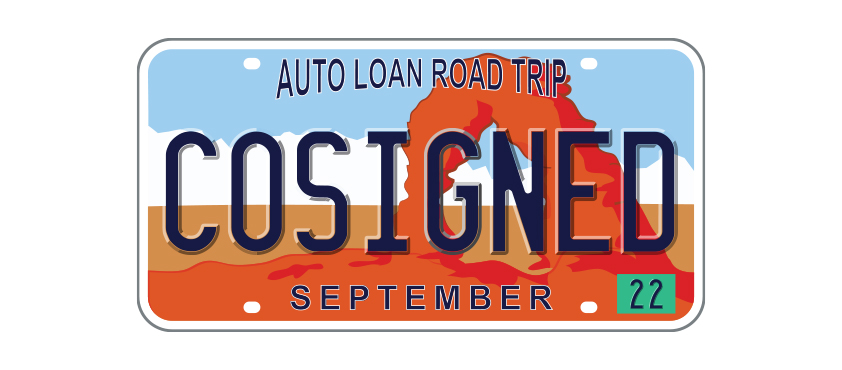 If you apply for an auto loan but are either denied or don’t qualify for the interest rate you’d like, it isn’t necessarily the end of the road. A co-borrower or cosigner may be able to help you get approved for a loan with the terms you’d like.
If you apply for an auto loan but are either denied or don’t qualify for the interest rate you’d like, it isn’t necessarily the end of the road. A co-borrower or cosigner may be able to help you get approved for a loan with the terms you’d like.
What Is a Co-borrower?
When it comes to buying a vehicle, some consumers choose to finance an auto loan on their own while others decide to finance together with another person (usually a trusted individual, such as a family member). When two people finance a loan together, the person who files the application and whose name appears first on the loan documents will be termed the primary owner or “primary” while the other will be termed the co-borrower. Different financial institutions may have varying policies on how many co-borrowers there may be on a single auto loan.
Primaries and co-borrowers share equal responsibility and ownership over an auto loan, regardless of who actually drives the vehicle. Both are responsible for paying back the debt, and the loan reflects on both parties’ credit reports. This means that the credit scores for both primaries and co-borrowers are affected for better or worse, depending on whether or not monthly payments are consistently made on time and in full.
Why Have a Co-borrower?
There are a few reasons why two or more people may decide to finance a loan together. For example, maybe an applicant is unable to qualify for a loan on their own because of insufficient income. This could affect the lender’s confidence in the applicant’s ability to keep up with loan payments. If they apply with a co-borrower, however, the lender will take both individuals’ income into consideration, increasing the chances of approval.
Another possibility is that an applicant’s credit is preventing them from being approved for a loan, qualifying for their desired interest rate, or qualifying for the size of loan they’d like. This could be because they have too low of a credit score and/or little to no credit history. In this case, the applicant may choose to finance with a co-borrower who has an established credit history and a credit score that could help get the loan approved.
Yet another reason could be that a couple wants to finance a loan together so that they each have equal stewardship over the loan.
Cosigners
An alternative to having a co-borrower is to have someone act as cosigner. The terms “co-borrower” and “cosigner” are sometimes used interchangeably because of the similarities between the two, and it’s easy to see why. Both can help a loan to be approved if the primary is unable to do so on their own. Both are often family members or friends of the loan applicant. And the credit reports and scores of both are directly affected by the loan they helped to get approved. But while the two are alike, they aren’t quite the same.
The difference between cosigners and co-borrowers essentially comes down to the level of ownership and responsibility they have over the loan. While a co-borrower shares ownership of a loan with the primary, a cosigner does not. In fact, a cosigner typically doesn’t benefit directly from cosigning a loan. Instead, their main purpose is to take over the responsibility of paying back the debt if the primary is unable to. If this happens, the cosigner is still not entitled to any rights or ownership over the vehicle, even if they’re making payments on it.



